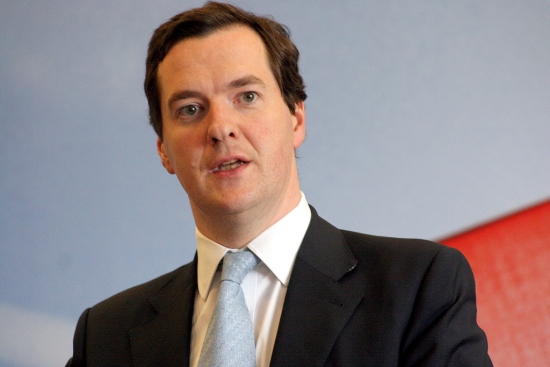UK businesses and motorists were given a piece of good news yesterday, as Chancellor George Osborne announced the scrapping of a proposed fuel duty rise as part of his Autumn Statement. The hike in price was due to come into effect in January, and would have added 3 pence per litre onto the cost of petrol and diesel. At this point, it is uncertain whether the rise has been scrapped altogether or will come into effect later in the year.

Chancellor George Osborne
This is not the first time the present Government has reversed policy on fuel duty, as a 3 pence rise was also supposed to be imposed in January 2012. However, it was scrapped in the Autumn Statement in 2011.
Then a fuel duty rise of 5 pence, due to come into effect in August, was postponed until January 2013 and lowered to 3 pence per litre. Like last year, the Chancellor has softened the blow of an otherwise negative Autumn Statement by appealing to motorists.
Osborne would have risked a potential political crisis had he decided to proceed with the fuel duty hike, as businesses are already struggling with fuel prices and the cost of travelling by bus or train has now risen. This would have meant that all commuters, regardless of how they make their way into work, would have been penalised. Families who rely on their car to bring in the weekly food shop or take children to school would also have faced a further squeeze on their budget.
Industry experts have said that the scrapping of the increase in duty has meant the average driver will be able to save £7.69 every month – yet this may still not be enough for many.
In a report published by the Institute of Economic Affairs, it was revealed that many of the UK’s workers would actually be better off financially living on benefits, largely due to the high petrol cost in commuting to work via car. In some cases, workers are only better off by 4 pence per £1 earned due to a marginal tax rate of 96 per cent.
In an excerpt from the report, it says; “Motoring taxes may increase welfare dependency by raising travel to work costs, meaning many potential workers may be better off on welfare benefits than entering employment.”
Of course, the option of using public transport is there for some, but for those who live in rural areas this can often be highly impractical, if not impossible. Plus, with rail and bus fares rising, it can only be a matter of time before public transport becomes just as expensive as driving.
It is true that fuel consumption in the UK has fallen hugely in the past two decades, with a drop of 20 per cent since 1991-1992 to 50.6 billion litres in 2011-2012.
Yet this has not been the case in terms of fuel duty. This year, the Government is expected to gain almost £27 billion from fuel duty alone – yet in 1991-1992, when 20 per cent more fuel was used, only £11 billion in fuel duty entered the Treasury.
Edmund King, president of the AA, believes that drivers should not be penalised for attempting to cut back on fuel consumption. Before the scrapping of January’s fuel duty hike was announced, he said;
“Drivers in the UK have followed Government advice to purchase more fuel efficient vehicles.
“It is remarkable that fuel consumption has fallen 20 per cent in two decades, however drivers are contributing 144 per cent more in fuel duty tax so should not be stung by another hike in January.”
Other Key announcements in the Chancellor’s Autumn Statement include extending empty property rate exemption to new build commercial property from October 2013 and the extension of small business rate relief until April 2014.
Previous Post
Bad News for Tesco at Home and Abroad